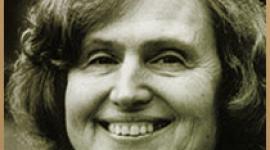What Is Grief?
An examination of grief. What grief is and why we try to keep grief at bay, avoiding emotional pain and the impact of doing that.
"Grief is; the impotent rage of being born into a Universe of change."
--- Charles Garfield
Everyone has grief. It's an inescapable reality of human existence.
We are not abnormal or weak because we experience grief. We are merely touching the depths of the human experience, the chasm between what we wanted . . . and what is.
From the first moment that we don't get exactly what we want from the world, we experience grief. It may come as early as the moment we leave the womb. Or it may come in the womb.
As infants we react with tears, sometimes in fear, sometimes in pain, sometimes in rage. As we get older we learn to control our reactions. We become adept at concealing the tears, pain, and anger, from ourselves and from others. But they are always there, lurking just beneath the surface. And whenever we are faced with a cataclysmic loss in our lives, the accumulated grief of our entire lifetime rises to the surface.
At moments of profound loss, our defenses crumble. We no longer have the strength to stuff our feelings down. Sometimes just seeing another's tears is sufficient to trigger our own.
Many of us react to grief by distracting ourselves. Or we seek to gain economic, political, and social power to have the illusion of being able to control our internal and external environments. For many of us, when other distractions don't work, we numb ourselves with alcohol or drugs.
Our grief can be our undoing. It can turn us off to ourselves-to our lives and to our world.
Or... it can be the sword that tears our heart open, that allows us to be vulnerable, that takes away our illusion of control, our self-imposed distance from our capacity to love and surrender.
If we can meet our grief with courage and awareness, it can be the key that unlocks our hearts and forces us into a profound new experience of life and love.
In that sense, grief can be our friend . . . a fierce teacher, but a welcome wake-up call. It is the one thing that can jar us out of our propensity to sleepwalk through life and through relationships.
The Complexity of Grief
 And what is "grief other than the agonizing space of disharmony, disequilibria, and discomfort between what we want from life and what we ultimately get? It is the vast reservoir of our accumulated past losses. It is the awareness of the inevitable losses to come. It is the sea of human disappointment.
And what is "grief other than the agonizing space of disharmony, disequilibria, and discomfort between what we want from life and what we ultimately get? It is the vast reservoir of our accumulated past losses. It is the awareness of the inevitable losses to come. It is the sea of human disappointment.
It is the recognition that, ultimately, we have no control.
From our very first encounter with grief, our life has been a process of learning to cope with, to integrate, or to avoid the discomfort and disappointments we inevitably experience in life.
Many of us think of grief as the emotional pain surrounding the physical death of someone we love. But grief is much more complex, much more fundamental to our lives and the way we choose to live them.
At the very foundation of our society is the drive to avoid that which is unpleasant -- to negate the aspects of life that would bring us disappointment. Instead of being taught how to deal with the inevitable disappointments and losses in our lives, we have been taught to ignore and deny them. We've been taught to "put on a happy face," "keep a stiff upper lip," and to "talk about something more pleasant." We want to "feel better fast." Many little boys have been taught not to cry because it's "unmanly." And many little girls have been taught that their emotions are irrational . . . an inconvenient by-product of unbalanced female hormones.
Our entire culture is built on maximizing pleasure through the systematic avoidance of grief. We worship youth, beauty, strength, energy, vitality, health, prosperity, and power. We have confined illness, aging, and death to hospitals, nursing homes, funeral homes, and cemeteries. We treat these places like ghettos where distasteful things are happening and where most people in our society would rather not go unless they have to.
We spend billions of dollars each year on cosmetics, cosmetic surgery, hair transplants, hair dyes, liposuction, girdles, breast implants, breast reductions, genital enhancement, toupees, and wigs-all in an effort to change the ways in which our bodies don't measure up to the cultural model of "beauty." We don't want to look old, wrinkled, paunchy, or bald. The cultural model is so pervasive that we have evolved diseases like anorexia nervosa and bulimia. Their victims, mostly young women, would rather die of starvation than live with one ounce of fat on their bodies.
Why Can't We Handle Our Grief
And when faced with a death, we hire "professionals" - funeral directors and cemeterians - who, historically, we have looked toward to help us keep grief at bay, to help us deny the reality and finality of loss, the inevitability of change and decay. We don't want to participate in the process . . . we want to have someone else do it for us.
At every stage of our lives we are desperately trying to overcome the ways in which our bodies and our world disappoint us. And yet, the processes of aging and dying may have great lessons to teach us about the natural order of the Universe and our place in it. We fail to learn these lessons because we keep pushing them away.
A few years ago, when the accumulation of excessive material wealth and possessions became a popular life goal and Donald Trump was held up as a cultural hero, there was a popular bumper sticker that read, "He who dies with the most toys wins!"
A more enlightened view might rather be, "He who dies with the most joy wins."
And ironically, the road to joy lies not in avoiding the suffering, sadness, and disappointment in life, but in learning to go through it, to accept it . . . to grow in understanding, compassion, and love because of it.
At the very same moment that we feel consumed by grief, we each have the source of all Joy and happiness inside ourselves...
Our grief is, in a very real sense, the mistaken belief that our happiness is connected to external things, situations, and people. It is the loss of awareness that happiness flows from within.
So grief is more about the loss of connection to our own selves than it is about the loss of connection to a loved one or relationship.
Even if we do remember that happiness flows from within, we feel that something has happened which blocks our access to the source. Our grief is largely the sadness of losing our connection to our innermost being . . . of feeling cut off from ourselves and therefore from our ability to be happy. And no amount of monetary or material accumulation can replace the connection with our "inner being."
In many societies that we have viewed as "primitive," all of life is seen as a preparation for death. Every moment of uncertainty, every surprise, every shock, every danger, every love, every relationship, every loss, every disappointment, every head cold - is seen as an opportunity to prepare for death, to learn to surrender to the inevitability of change, to acknowledge that life doesn't always give us what we want, to know with certainty that it can all change in the blink of an eye.
Our society has perceived life as an opportunity to deny the inevitability of aging, change, and death. And in so doing, we have robbed ourselves of the ability to feel connected to the natural way of things. We react to death and loss as "unfortunate," "incomprehensible," and "wrong." But death just is. It is a fact of life. The way of all things is to arise, to take birth, to change, and ultimately to decay and die. Every living form in the physical Universe changes, decays, and dies. Every form.
The thought that our life should be other than it is at this moment, that the circumstances of our life, our family, our business -- our world are unacceptable -- is the groundwork of our grief.
Any thought that takes us out of this moment, whatever feelings and experiences this moment may hold, is the groundwork of our grief. The life and death issues in this Universe ultimately are beyond our control. We can be prudent, responsible, careful, and protective of our loved ones, but ultimately it is all beyond our control.
Grief Is Many Different Things
So grief is primarily the pain of resisting what is. It is the inevitable outgrowth of our human mind thinking that the people, places, and events of our life should be other than they are.
It is also the sadness and despair of lost opportunities. I notice in myself a grief about the passing of my own youth, a sadness that one day, inevitably, each of my loved ones and I will part for the last time. And in each relationship I've lost, whether through death or some other form of parting, I experience a frustration about the opportunities that were missed-about the ways in which two hearts stayed separate, the frustration over our failure to become one, the ways in which I/we could have been more, done more, said more, given more.
This book is about the ways in which our society has sought to avoid grief. It's about the ways in which that avoidance has prevented us from being fully human. It's about the methods we can use to begin to deal effectively with the grief in our lives.
Ultimately, it's about happiness. . . the happiness that arises within us when we begin to have space in our hearts to handle life in its totality. The joy, the love, the fun-and the frustration, sadness, and anger. It's all workable.
The process of opening our hearts to all of it is the process of healing grief.
The above article originally appeared as Chapter Seven of John E. Welshons' book,
Awakening from Grief: Finding the Road Back to Joy
next: Healthy Relationships Alleviate Depression and Prevent Relapse
~ depression library articles
~ all articles on depression
APA Reference
Tracy, N.
(2008, December 2). What Is Grief?, HealthyPlace. Retrieved
on 2026, March 1 from https://www.healthyplace.com/depression/articles/what-is-grief




